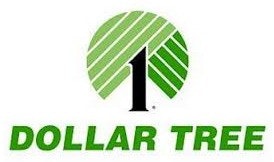
Unique industry dynamic
What is most unique about the dollar store industry is that there should not be any inherent competitive advantages, yet the companies’ results show evidence of economic moats.
Dollar Tree, Inc. (NASDAQ:DLTR) and Family Dollar Stores, Inc. (NYSE:FDO) are virtual copies of each other; there literally is no substantive difference between the two except for the name plastered on the front of the store. Dollar General Corp. (NYSE:DG) is only slightly different in that it carries a differentiated set of SKUs, but is otherwise similar to its peers.
The income statement is about what you would expect for an industry that has virtually identical competitors; margins are roughly equal and so is operating efficiency.

The weak U.S. economy has boosted margins significantly; margins are now higher than their historical norms and will likely revert to 2003 levels if the economy picks up again.
Government programs designed to assist low-income families are largely responsible for the increase in foot traffic in the stores; one of the main reasons people shop at dollar stores is to get an even better deal than they can get at Wal-Mart.
Most customers tend not to be loyal to the dollar stores when their income increases due to a recovering economy, but the stores do benefit from a degree of customer stickiness. While they cannot match Wal-Mart’s unique combination of price and quality, the dollar stores can beat Wal-Mart on convenience. Many of the stores are located in markets that are too small to support a Wal-Mart, thus they are free from significant competition that would otherwise dampen profitability.
The lack of significant competition in the markets in which the stores compete is the primary reason that they are able to earn such high returns on invested capital (ROIC). All three companies earn solidly double-digit ROICs even during normal years. Dollar General Corp. (NYSE:DG) fell behind in in the lead-up to the financial crisis due to mismanagement, but it is capable of earning ROIC similar to that of its peers.

Can it last forever?
Dollar stores sell a commodity product, yet earn staggering ROICs. However, it is dangerous to assume that a company has a sustainable competitive advantage simply because of a history of outsized ROIC; investing while looking in the rear-view mirror is bound to eventually fail.
The high ROICs will undoubtedly attract additional competition. In fact, Wal-Mart, angry at the dollar stores for borrowing its poorest customers during the recession, is making a major push into the dollar store category itself. It is anyone’s guess as to whether Wal-Mart can match the success of Dollar Tree, Inc. (NASDAQ:DLTR), Family Dollar Stores, Inc. (NYSE:FDO), and Dollar General Corp. (NYSE:DG), but it is almost certain that Wal-Mart’s entry into the market will lower ROICs for some time.
As a result, investors should expect lower profitability from the traditional dollar stores over the next few years, but should not count them out in the long run; their small-market locations are likely safe from Wal-Mart, so expect the traditional dollar stores to continue earning outsized profits for years to come.
The article A Niche That Can’t Be Breached originally appeared on Fool.com.
Copyright © 1995 – 2013 The Motley Fool, LLC. All rights reserved. The Motley Fool has a disclosure policy.
